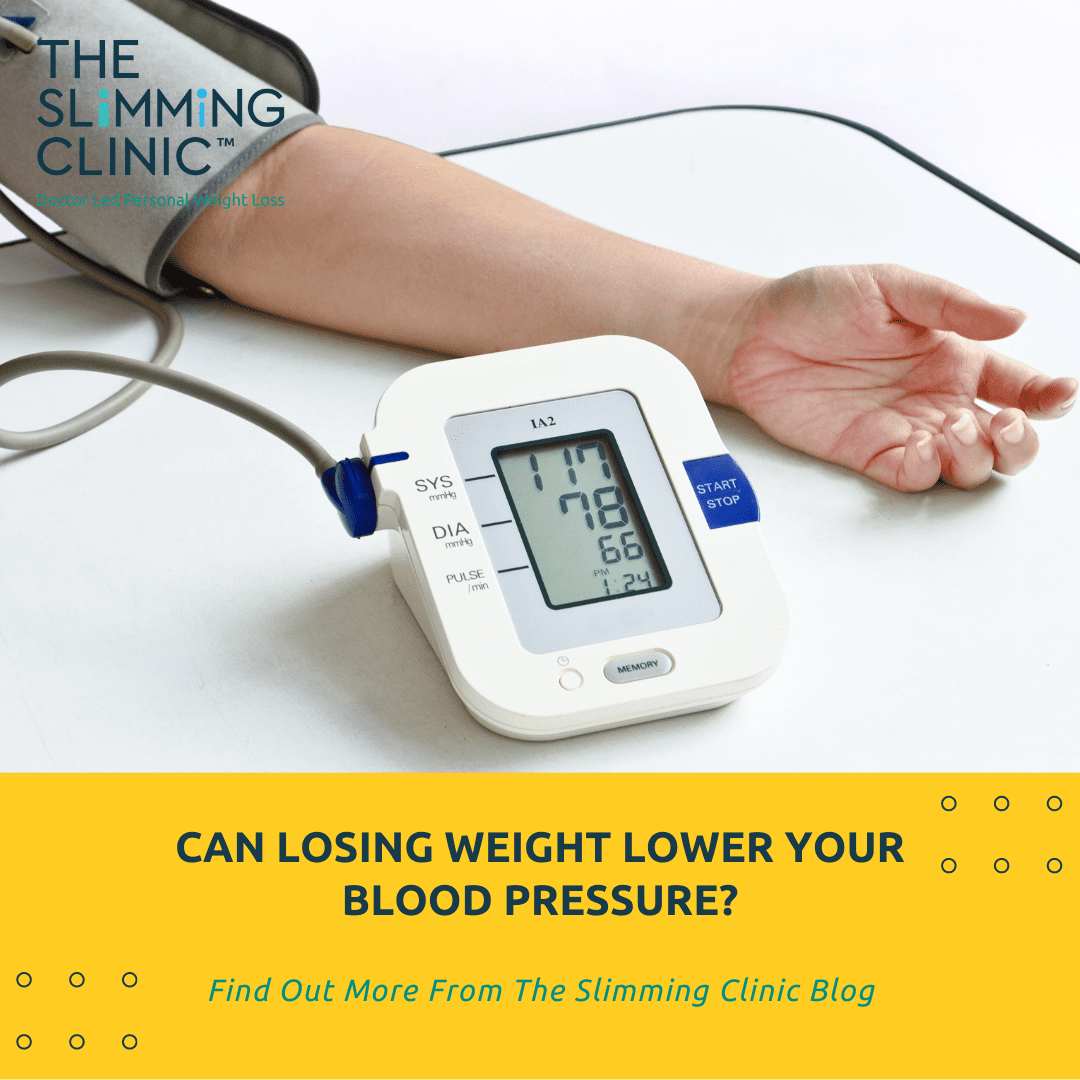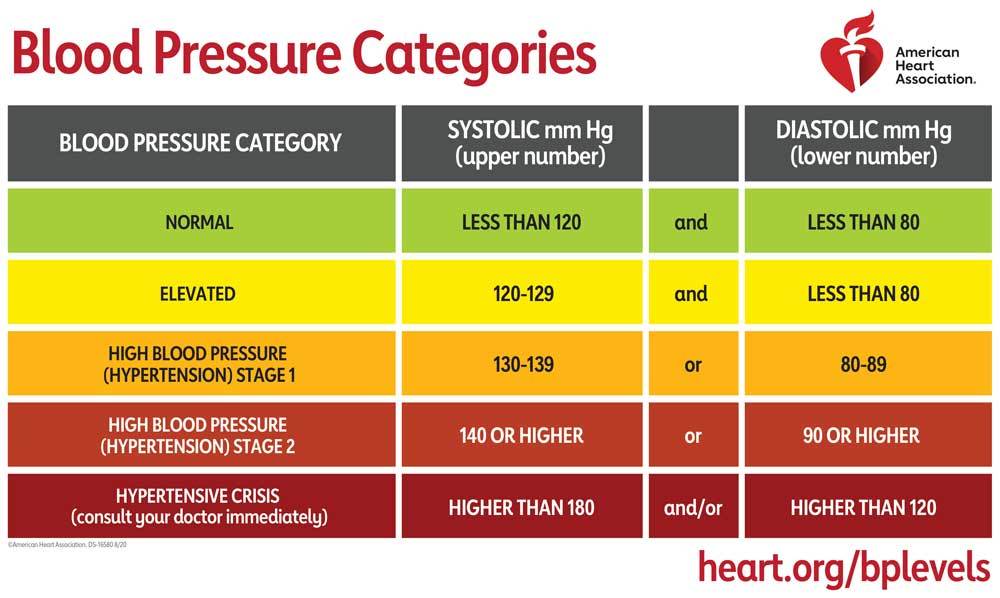Weight loss can significantly affect blood pressure levels. Many people do not realize the connection between their weight and their heart health.
High blood pressure, or hypertension, is a common issue. It can lead to serious health problems like heart disease and stroke. For those struggling with hypertension, weight loss may be a helpful solution. Studies show that even a small amount of weight loss can improve blood pressure.
Losing weight reduces stress on the heart and blood vessels. It also improves overall health. Understanding how weight loss affects blood pressure is important for anyone looking to manage their health better. This blog will explore the benefits of weight loss for blood pressure and offer tips to help you achieve your goals.

Credit: theslimmingclinic.com
The Link Between Weight And Blood Pressure
Excess weight can harm the heart. It often leads to high blood pressure. The heart works harder with extra weight. This causes strain on blood vessels.
When blood vessels are strained, it can cause problems. High blood pressure can lead to serious issues. These include heart attacks and strokes. Losing weight can help lower blood pressure.
Studies show that even a small weight loss helps. Losing 5-10% of body weight can make a difference. This simple change can improve heart health.
Quantifying Weight Loss Benefits
Weight loss can greatly improve blood pressure. Studies show that losing just one pound can help lower blood pressure. Each pound lost may reduce systolic blood pressure by about 1 mm Hg. This means that more weight lost can lead to better health.
For those with high blood pressure, every bit helps. A loss of 5 to 10 pounds can make a big difference. This can lower blood pressure by 5 to 10 mm Hg. Staying at a healthy weight is important for overall health.
| Weight Lost (Pounds) | BP Reduction (mm Hg) |
|---|---|
| 1 | 1 |
| 5 | 5 |
| 10 | 10 |
Dietary Changes For Weight Loss And Lower Blood Pressure
Eating the right foods can help lower blood pressure. Focus on fruits and vegetables. They are low in calories and high in nutrients. Whole grains are also good. They help you feel full longer.
Choose lean proteins like chicken and fish. They are healthy options. Avoid processed foods. They often contain too much salt and sugar.
Limit your intake of saturated fats and trans fats. These can raise blood pressure. Instead, use healthy fats like olive oil. Drinking plenty of water is also important.
Reducing sodium is key. Aim for less than 2,300 mg per day. Read food labels to check for hidden sodium. Small changes can make a big difference.

Credit: www.weightlossresources.co.uk
Physical Activity: A Dual Approach
Physical activity plays a big role in health. It helps with weight loss and blood pressure control. Different types of exercise can be very helpful.
Exercise types that benefit weight and blood pressure include:
- Walking: Easy and good for everyone.
- Swimming: Great for the whole body.
- Cycling: Fun and builds strength.
- Yoga: Reduces stress and improves flexibility.
Creating a sustainable exercise routine is important. Choose activities you enjoy. Start slow and increase your time. Aim for at least 150 minutes of activity each week.
Mix different exercises for variety. This keeps it fun and interesting. Consistency is key for lasting results.
Lifestyle Modifications Beyond Diet And Exercise
Stress can affect blood pressure and weight. Managing stress is important for good health. Simple techniques can help. Try deep breathing exercises. Practice mindfulness or meditation. These methods can relax the mind and body.
Sleep is also very important. Lack of sleep can raise blood pressure. It can lead to weight gain too. Aim for 7 to 9 hours of sleep each night. A good sleep schedule helps the body recover.
Quality sleep and stress management can improve overall health. They help in weight loss and blood pressure control.
Medications And Weight Loss: A Complex Relationship
Weight loss can affect blood pressure. It may help some people. Certain medications can change how weight loss works.
Some blood pressure medications may cause weight gain. These include:
- Beta-blockers
- Diuretics
- ACE inhibitors
Doctors often adjust medications during weight loss. Adjustments help keep blood pressure normal. Regular check-ups are important.
Weight loss can lead to less medication needed. Some may stop taking medication. Always talk to a doctor before making changes.
Setting Realistic Goals And Monitoring Progress
Setting realistic goals is very important for weight loss. Start with small and achievable targets. Aim to lose 1 to 2 pounds each week. This helps keep you motivated. Celebrate each success, no matter how small.
Track your progress regularly. Use a notebook or an app. Write down your weight each week. Also, check your blood pressure often. This shows how weight loss affects it.
| Week | Weight Lost | Blood Pressure |
|---|---|---|
| 1 | 1 lb | 120/80 |
| 2 | 2 lbs | 118/78 |
| 3 | 1.5 lbs | 115/76 |
Success Stories And Case Studies
Many people have shared their weight loss journeys. They noticed big changes in their blood pressure. One man lost 30 pounds. His doctor said his blood pressure dropped to normal levels. A woman lost 20 pounds. She felt much better and had more energy.
These stories show the power of weight loss. Small changes can lead to big results. Eating healthier foods is important. Regular exercise helps too. Many found support in friends or groups. This made the journey easier.
Listening to their bodies is key. They learned to enjoy healthy meals. Setting realistic goals kept them motivated. Each step mattered. These lessons can help anyone on a similar path.
Overcoming Challenges In Weight Loss And Blood Pressure Reduction
Plateaus and setbacks can be tough. Weight loss is not always easy. Sometimes, progress slows down. This can be frustrating. It helps to stay calm. Focus on small goals. Celebrate each victory.
Staying motivated is key. Find support from friends or family. Join a group with similar goals. Share your journey. Talk about your challenges and wins.
Keep reminding yourself why you started. Write down your reasons. Read them when you feel down. This can help you stay on track. Remember, every step counts.

Credit: www.atkins.com
Future Directions In Managing Hypertension Through Weight Management
Recent studies show a strong link between weight loss and lower blood pressure. Research highlights that diet plays a big role. Eating healthy foods can help manage blood pressure.
Exercise is also important. Regular physical activity can lead to weight loss. This, in turn, helps keep blood pressure in check.
New tools are emerging for tracking health. Wearable devices can monitor weight and activity. These technologies help people stay on track with their health goals.
Personal health apps are gaining popularity. They provide useful tips on diet and exercise. Such tools can make managing blood pressure easier.
Frequently Asked Questions
How Does Weight Loss Affect Blood Pressure?
Weight loss can significantly lower blood pressure. Losing even a small amount of weight, such as 5-10%, can result in meaningful reductions. This is due to decreased strain on the heart and improved circulation. Overall, maintaining a healthy weight promotes better cardiovascular health.
What Is The Ideal Weight Loss For Blood Pressure?
Aiming for a 5-10% reduction in body weight is ideal. This amount has been shown to yield significant benefits for blood pressure. For example, if you weigh 200 pounds, losing 10-20 pounds can help. Consult with a healthcare provider for personalized recommendations.
Can Diet Help Lower Blood Pressure?
Yes, diet plays a crucial role in managing blood pressure. Consuming foods rich in potassium, magnesium, and fiber can help. A balanced diet low in sodium and saturated fats is also beneficial. Incorporating fruits, vegetables, and whole grains supports both weight loss and blood pressure management.
How Quickly Can Weight Loss Impact Blood Pressure?
Weight loss can positively affect blood pressure within weeks. Many people experience noticeable changes after losing just a few pounds. Consistent weight loss, combined with a healthy lifestyle, can lead to sustained improvements over time. Regular monitoring of blood pressure helps track these changes effectively.
Conclusion
Weight loss plays a key role in lowering blood pressure. Losing even a small amount of weight can lead to significant health benefits. It reduces strain on the heart and improves overall well-being. Regular exercise and a balanced diet support this goal.
Simple lifestyle changes make a big difference. Focus on healthy habits for lasting results. Remember, every step counts. Consult with a healthcare provider for personalized advice. Taking control of your weight can lead to better blood pressure and a healthier life.
Start small, stay consistent, and feel the positive changes.

















